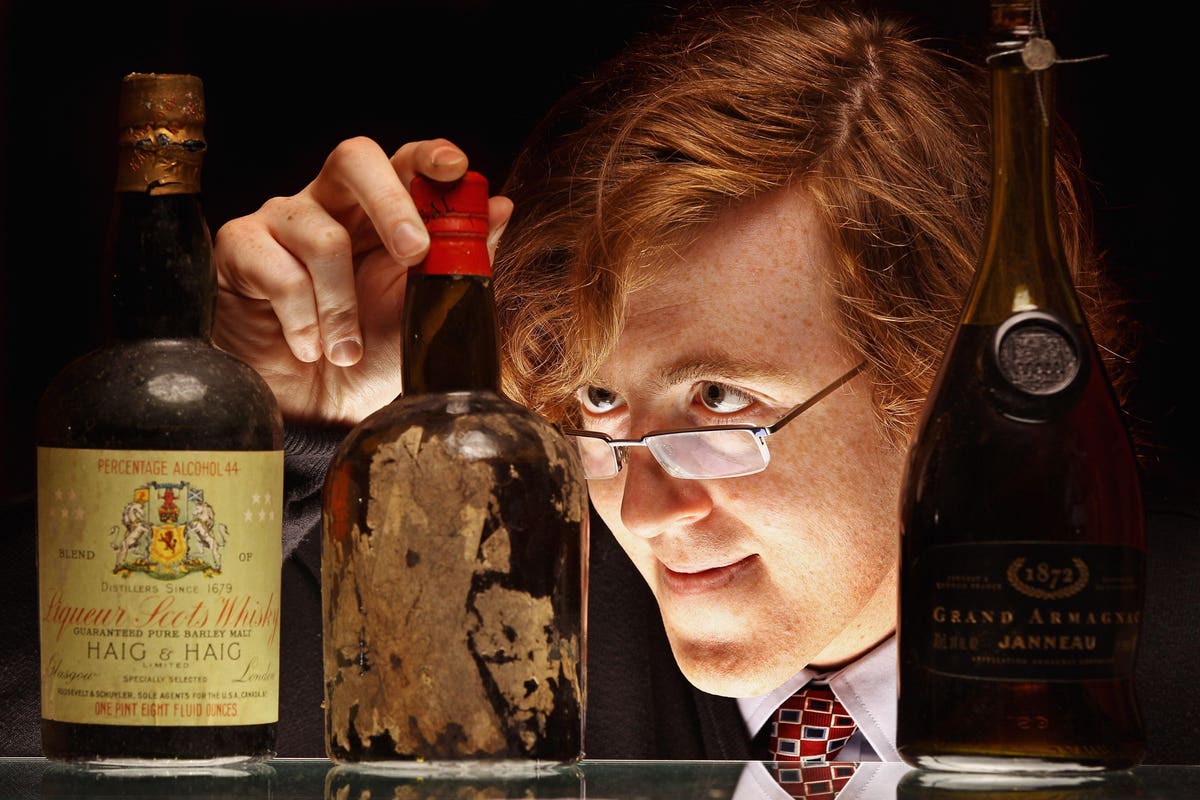Late last year, a hidden trove of whisky was discovered in a cellar room deep within a 13th century Scottish castle. The liquid was subsequently tested and determined to have been distilled back in 1833, making it the oldest known scotch in existence. Now two dozen bottles of it are going under the hammer in a November auction. Here’s how to get your hands on the priceless treasure.
Well, it’s not priceless, exactly. When it goes up for sale at Whisky Auctioneer between November 24th and December 4th, each bottle is expected to nab roughly £10,000. It doesn’t seem like an exorbitant sum when you consider that rare Macallan bottlings from the mid-1900s have been getting 10 times that amount lately.
But let’s be clear: this isn’t a bottle of The Macallan. In fact, nobody knows for sure where it was distilled—or even if it’s a single malt, at all. Only that it was made in the early 1830s and bottled in 1841, according to carbon dating technology from the Scottish Universities Environmental Research Centre. So although it’s nearly 200 years old in actuality, if this whisky wore an age statement—which is reflective of the time between distillation and bottling—this one would brandish a wholly unimpressive “8” on its label.
Far more important than any statement of age, however, is how the liquid was cared for in the two centuries since it was left on the shelf. And the fact that it remained in a dark, relatively cool cellar environment bodes well for its preservation. Whisky, like any liquid, oxidizes over time. It occurs slower in any distilled spirit, as opposed to wine or non-alcoholic beverages, but temperature fluctuations and exposure to light are factors that can accelerate the process. As is laying the bottles on their side, so as to eat away at the integrity of enclosures.
We can assume the whisky in question was pretty good juice to start with, just on account of where it was found. Blair Castle is the ancestral home of the Dukes of Atholl. They’ve had some pretty distinguished guests throughout the years. To wit, it’s even believed that Queen Victoria would have sampled this spirit alongside Prince Albert when she visited the property in 1844.
Earlier this year, the contemporary keepers of the castle sought to gauge the quality of the whisky. They enlisted the help of Angus MacRaild, who studies and specializes in old and rare whiskies. He noted that the liquid held weight and freshness and featured medicinal qualities, minus the presence of peat.
Prior to auction, the alcohol was re-bottled at the same proof point at which it was found. This exact number has not been disclosed, but it would need to be above 80-proof in order to legally be labeled a scotch.
Notably, MacRaild—who is set to soon open his own distillery devoted to “old style” methods—never went on record to say it was the most exceptional whisky he has ever sipped. He merely pointed out what a privilege it was to try something so historic. And this highlights an underlying reality: the actual tasting notes of 200-year-old scotch are almost irrelevant. It exists more as a portal into the past; an opportunity that’s way too tempting for any self-respecting whisky geek to pass up. Any whisky geek with at least £10,000 to spare, that is.
Read the full article here





